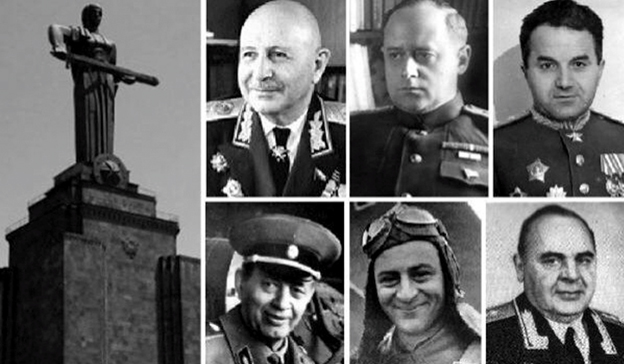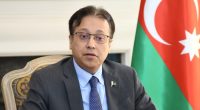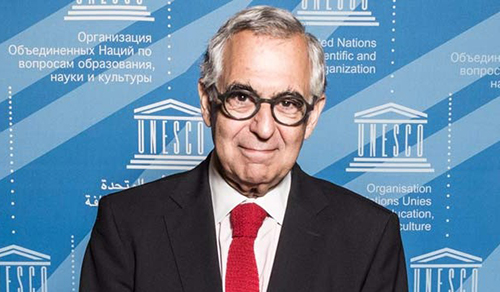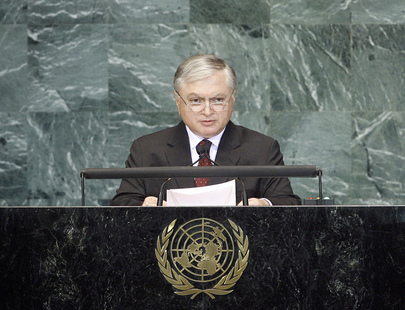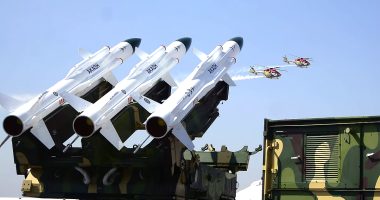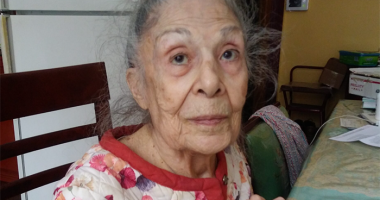By BARKEV TAVITIAN
The avenging arm of the Armenian Genocide, which began with “Operation Nemesis”, found its continuation in the blows dealt by the half-million-strong valiant Armenian soldiers. These soldiers fought heroically on various fronts to bring Nazi Germany to its knees. This was the same Germany—formerly the Imperial Germany—that, through open support and complicity, gave the Turks the means and opportunity to commit their horrific crime against the Armenian people.
The French-Armenian hero and child of the Genocide, Missak Manouchian, who fought against the German racist army in occupied France, knew with certainty that he was avenging his ill-fated nation.
Likewise, the Armenian soldier serving in the Soviet army was well aware that by shedding his blood on the battlefield and forging victory, he was keeping the executioner from once again continuing his crime across the Arax River, in Yerevan.
It is indisputable that by capturing Berlin, the Armenian soldier—through his triumphant Kochari dance in the heart of the defeated German capital—secured the life and honour of the remnant of our martyred people.
600,000 Armenians took part in the Great Patriotic War: 300,000 from Soviet Armenia, 200,000 from other republics of the Soviet Union, and 100,000 who fought in the armies of the anti-Hitler coalition.
With 200,000 of its soldiers lost, Soviet Armenia formed a bulwark against the expected Turkish invasion, as Turkey stood on the other side of the border, awaiting the Soviet Union’s defeat.
The Armenian took pride in Marshal Hovhannes Bagramyan, General-Major Hamazasp Babajanyan, and the numerous Armenian officers serving in the victorious Soviet army. Noteworthy is the praise from the brilliant Soviet commander Marshal Georgy Zhukov, who said: “From soldier to marshal, Armenian fighters covered themselves with the undying glory of valiant warriors.”
Thus was the Armenian soldier known—brave and heroic at all times. It was these renowned soldiers and their sons, moving under the skilled command of General-Major Arkady Ter-Tadevosyan (known as “Commandos”), who succeeded in liberating Artsakh (Nagorno-Karabakh), granting us all, for the first time, the pride and honour of belonging to a people who liberated their ancestral land and achieved victory.
However, due to thirty years of carelessness and unskillfulness in free and independent Armenia, we have lost all the honour and glory inherited from Soviet Armenia.
After the 2020 war and the loss of Artsakh, our necks are bowed, and we, unfortunately, are no longer the proud Armenians who could look the world in the eye.
It is said that Prime Minister Nikol Pashinyan will attend the 80th anniversary celebration of the Great Patriotic War on May 9 in Moscow. He must cast off the image of the defeated there and look President Putin in the eye as a representative of a people who gave 200,000 lives to serve the Russian victory—and remind him that he has failed in his role as a representative of a grateful people, and that the curse of those 200,000 Armenian soldier-martyrs weighs upon him.
The official end of the Great Patriotic War was declared on September 2, 1945—almost a month after the U.S. struck Hiroshima (August 6) and Nagasaki (August 9) with atomic bombs. By using those bombs, the U.S. INTIMIDATED the victorious Soviet Union, which was preparing to attack Turkey in order to liberate the occupied Armenian lands of Kars and Ardahan.
And yet, after 1945, some Armenians who claimed to be patriotic but were hungry for power sided with America during the Cold War—fired by dreams of liberty but having forgotten the homeland’s interests.
The Armenian contribution to the Great Patriotic War was vitally important to liberating humanity from the clutches of a monster that categorized nations as “superior” and “slave”. According to certain reliable sources, if Hitler’s Germany had triumphed, it planned to enslave the Russian people. What then would have become of the Armenian people who were in the arms of the “Russian slave”?
Glory to the brave and heroic Armenian soldier who bore the laurels of victory in the Great Patriotic War, and to today’s Armenian servicemen who walk in their footsteps.
Translated into English by AI.

